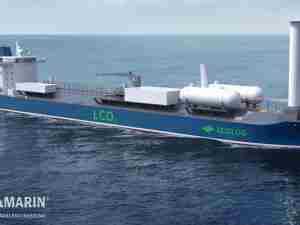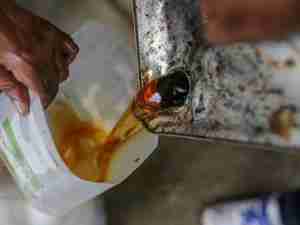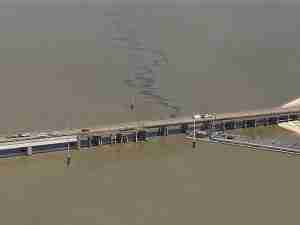GT Green Technologies, in collaboration with Carisbrooke Shipping and The University of Bristol, is set to revolutionise commercial shipping with its groundbreaking wind propulsion solution, AirWing™. The project has been awarded a substantial £3.7 million grant under the Clean Maritime Demonstration Competition Round 4 (CMDC4) to install a 20-metre AirWing unit on a Carisbrooke Shipping vessel in the UK, signifying a transformative shift towards greener maritime practices.
The 20-metre AirWing™ wind propulsion system will propel the vessel on its UK-Canada-UK route, offering significant benefits. Expected fuel and carbon emission savings reach an impressive 8.3%, resulting in annual cost savings exceeding £139,000. Over its 25-year lifespan, the 20-metre AirWing™ has the potential to reduce CO2 emissions by an estimated 14,250 metric tonnes, equivalent to taking over 3,000 cars off the roads.
AirWing™ utilises cutting-edge airflow manipulation technology designed to maximise thrust output while maintaining a compact and lightweight profile. This patent-pending innovation addresses the pressing need for sustainable shipping solutions, particularly on general cargo ships with limited deck space.

Carisbrooke Shipping, overseeing the technical management of a global fleet of 27 vessels, is strategically positioned as the first to integrate this groundbreaking technology. This pioneering move by Carisbrooke sets a compelling example for other industry players considering similar advancements to enhance their operational sustainability.
Captain Simon Merritt, Sr. Fleet Manager at Carisbrooke Shipping, expressed enthusiasm about the collaboration: “We’ve been discussing various technologies with GT Green for the last two years and are excited to be prototyping their AirWing concept in 2024. Using AirWing technology will reduce operating costs by lowering fuel consumption and emissions. It will improve the vessel's green credentials and lower the tax burden for the ship's operators. We will be installing the AirWing on one of our UK-registered vessels, and all the design work as well as construction will be carried out in the UK.”
Tobias Laux, Research Associate at The University of Bristol, commented: “We are very excited to be part of the AirWing consortium and to contribute our expertise in composite structures testing and modelling to the development of innovative wind propulsion technology. We believe that wind propulsion will play an important role in future sustainable shipping and that cross-disciplinary research in fluid dynamics, structures, and ship science will be necessary to harness its full potential.”
GT Green Technologies has already conducted feasibility studies for some of the largest global shipowners and received multiple LOIs for future orders. With 20,000 ships globally suitable for wind propulsion (versus only ~35 installations today), the market is vast, and GT Green Technologies' unique proposition positions the company ideally for rapid commercial deployment and scale-up.











